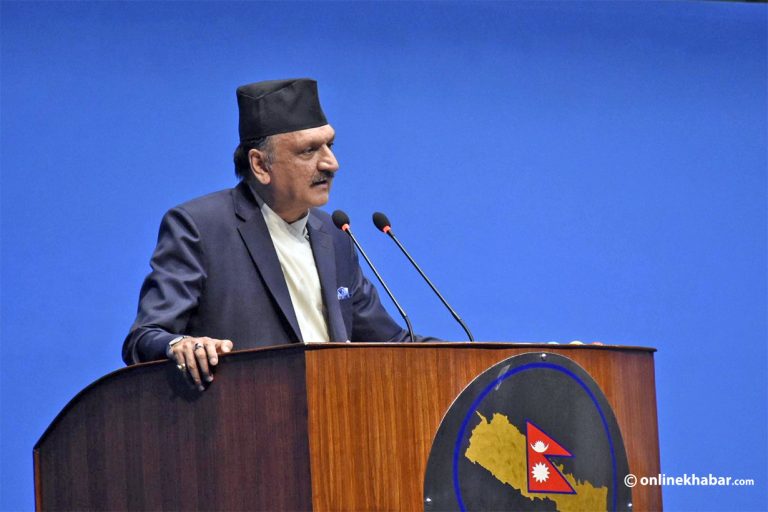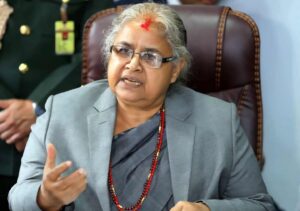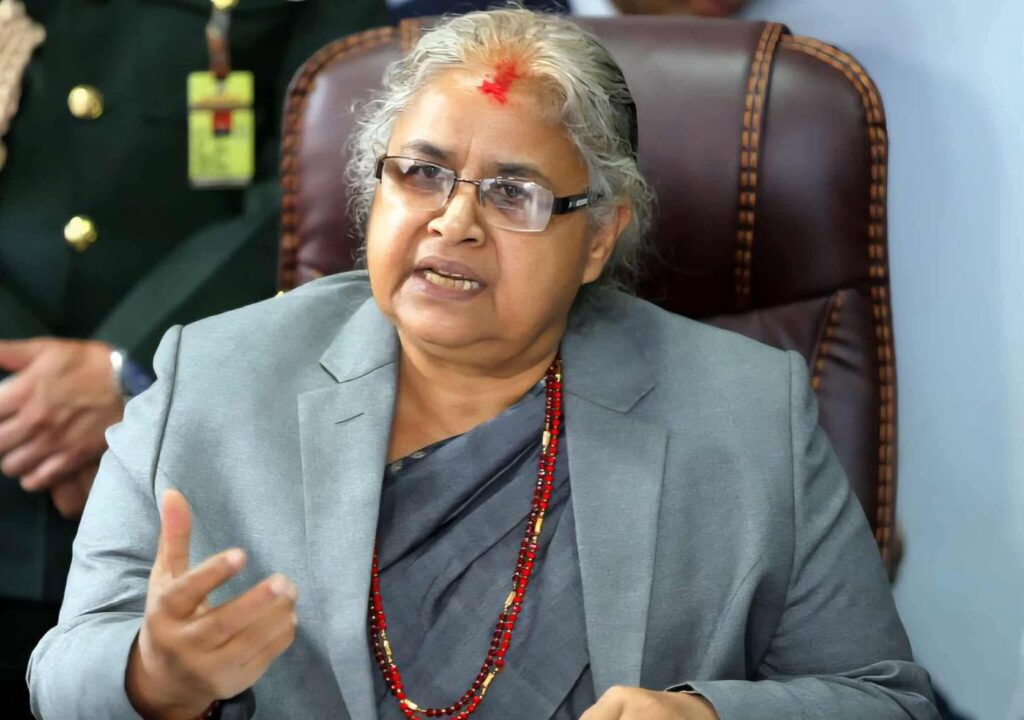Finance Minister Mahat Affirms Adequate Foreign Exchange Reserves

Kathmandu – Dr. Prakashsharan Mahat, the Finance Minister, expressed the government’s commitment to addressing the challenges hindering economic progress during his speech at the 25th annual meeting of the Nepal Economic Journalists Association in Kathmandu. He called on everyone to contribute from their respective roles to enhance the country’s economic situation, noting the growing influx of tourists and the adequacy of foreign currency reserves. The government is actively working to eliminate obstacles hindering economic sustainability, and it is evident that revenue is on the rise compared to the previous year.
Dr. Mahat stated, “We welcome support from all quarters, including the government machinery. It’s a natural and facilitated process. The tourism sector is flourishing, and our foreign exchange reserves are robust. We are committed to resolving any hindrances that may impede economic advancement. The future holds promise for our economy, with anticipated progress in the days ahead.”
In his remarks at the event, Chandra Prasad Dhakal, President of the Federation of Nepal Industry and Commerce, attributed the current state of the country’s economy to the disregard of suggestions provided by the private sector. He emphasized that making negative comments about the economy has adversely affected investor confidence. The lack of coordination among government agencies has also had detrimental effects on the economy.
Dhakal said, “The present situation has arisen because private sector suggestions were often sought but not implemented for the greater good. It is important for the private sector to contribute beyond self-interest. Failure to implement these suggestions may lead to reduced revenue. The lack of coordination among government bodies is compounding the problem. If state entities do not embrace their responsibilities and collaborate effectively, the state’s efforts will yield poor results.”
Rajendra Malla, President of the Nepal Chamber of Commerce, echoed concerns about the current state of the economy, emphasizing the need for corrective actions by regulatory bodies such as the Nepal Rastra Bank, Securities Board, and Insurance Authority to steer the economy back on track.
Malla asserted, “Our country’s economy is undeniably in a declining state. To rectify this, we need comprehensive coordination. The Nepal Rastra Bank, Securities Board, and Insurance Authority must take proactive measures to ensure economic sustainability. We urge a review of certain regulatory decisions, a reduction in lending rates, and a fairer approach to premium rates based on the base rate.”
He noted that public and investor confidence is eroding and called upon the government to foster self-reliance within the private sector to revitalize the economy.
 T
T

 T
T
Journalist Binod Dhaulagiri Releases Two Books on Journalism

 T
T
Sushila Karki to Become Interim Prime Minister; Parliament to Be Dissolved

 T
T
NPL Auction 2025 - Live । Nepal Premier League Season 2



 T
T
Finance Minister Mahat Affirms Adequate Foreign Exchange Reserves

 T
T
Journalist Binod Dhaulagiri Releases Two Books on Journalism

 T
T
Sushila Karki to Become Interim Prime Minister; Parliament to Be Dissolved

 T
T
NPL Auction 2025 - Live । Nepal Premier League Season 2

 T
T



